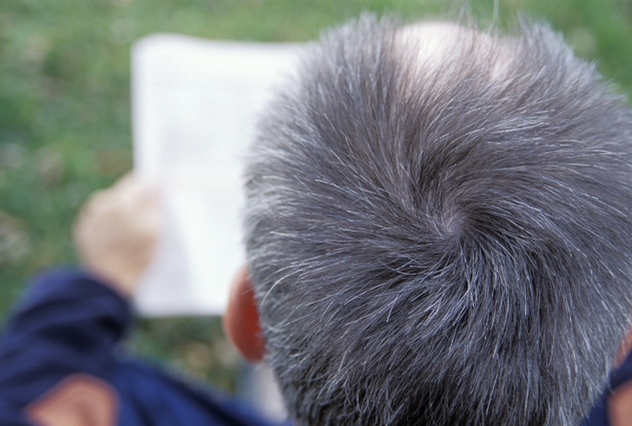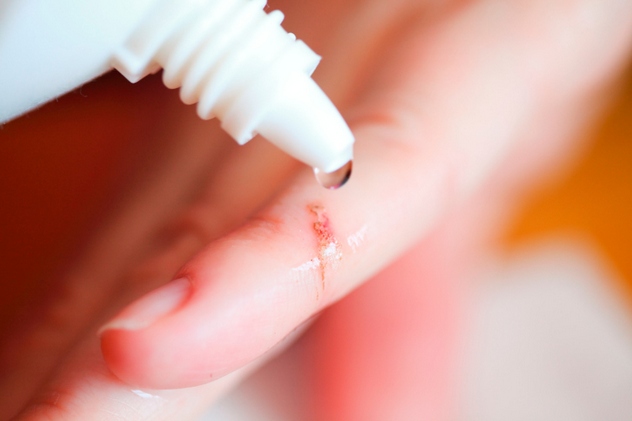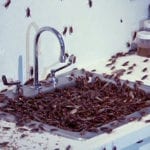 Weird Stuff
Weird Stuff  Weird Stuff
Weird Stuff  Miscellaneous
Miscellaneous 10 LEGO Facts That Will Toy with Your Mind
 Misconceptions
Misconceptions 10 Widespread Historical Myths and the Texts That Started Them
 Crime
Crime 10 Incredible Big-Time Art Fraudsters
 Movies and TV
Movies and TV 10 Most Influential Fictional Objects in Cinema History
 Our World
Our World Top 10 Real Almost‑Cities That Never Materialized
 Technology
Technology 10 Unsettling Ways Big Brother Is (Likely) Spying on You
 Music
Music 10 Chance Encounters That Formed Legendary Bands
 Space
Space 10 Asteroids That Sneaked Closer Than Our Satellites
 Sport
Sport The 10 Least Credible Superstars in Professional Sports
 Weird Stuff
Weird Stuff 10 of History’s Greatest Pranks & Hoaxes
 Miscellaneous
Miscellaneous 10 LEGO Facts That Will Toy with Your Mind
 Misconceptions
Misconceptions 10 Widespread Historical Myths and the Texts That Started Them
Who's Behind Listverse?

Jamie Frater
Head Editor
Jamie founded Listverse due to an insatiable desire to share fascinating, obscure, and bizarre facts. He has been a guest speaker on numerous national radio and television stations and is a five time published author.
More About Us Crime
Crime 10 Incredible Big-Time Art Fraudsters
 Movies and TV
Movies and TV 10 Most Influential Fictional Objects in Cinema History
 Our World
Our World Top 10 Real Almost‑Cities That Never Materialized
 Technology
Technology 10 Unsettling Ways Big Brother Is (Likely) Spying on You
 Music
Music 10 Chance Encounters That Formed Legendary Bands
 Space
Space 10 Asteroids That Sneaked Closer Than Our Satellites
 Sport
Sport The 10 Least Credible Superstars in Professional Sports
10 Answers To Baffling Questions You’ve Always Wondered About
There are certain questions that burn in the back of your mind throughout your life. You might wonder why something is built in a certain way, why a particular item is always in a specific location, or why your body does something. Yet you’ve never been able to come up with a logical answer to these common questions despite knowing that there must be one.
Below are 10 questions that have baffled people every day, along with the simple answers that finally provide closure.
10Why Do Airplanes Have Ashtrays When Smoking Is Banned?

Smoking on airplanes is banned by pretty much every airline in the world. Apart from the fact that cigarette smoke is unpleasant for others passengers, smoking is also a fire hazard, possibly even responsible for the downing of Varig Flight 820.
Despite the fact that smoking is forbidden, it is hard not to notice that toilets on airplanes have ashtrays in them. It is not just older plane models, either; brand new commercial aircraft also come fitted with ashtrays.
The answer is that the Federal Aviation Administration requires airlines to have ashtrays on their airplanes. Even though smoking is banned and airplanes are fitted with smoke alarms, the FAA knew that some people would still smoke. Providing a place for people to safely dispose of their cigarettes was deemed too important for safety reasons.
9Why Do Books Have Intentionally Blank Pages?
A huge portion of all published books come with at least one or two blank pages. Some books have even more empty pages, and they may carry a message saying “This page has been intentionally left blank.”
These blank pages are not the result of publishers purposefully wasting paper but rather a consequence of the printing process most commonly used. Pages for books are usually printed on very large sheets of paper—called “signatures”—rather than on individual pieces, allowing groups of 8, 16, or 32 pages to be printed together. Machines then fold and cut the pages into book form, but most written work will not divide exactly into eight, so there will be spare pages from the process.
Some books turn these extra pages into note sections or simply add a message to reassure readers that there has not been a printing error.
8Why Do People Sneeze When Looking At A Bright Light?

Around a third of all people will uncontrollably sneeze when they enter a brightly lit environment, such as when they go outdoors from a dim building. It’s a phenomenon that has baffled scientists for thousands of years.
Sneezes are a reactionary response. They can be caused by a number of different stimuli but usually happen due to nasal irritation. However, in the case of the so-called “photic sneeze reflex,” the sneeze is triggered by looking directly at a source of light. Researchers have proposed various theories to explain exactly why this happens, although none have ever been widely accepted.
Most scientists now believe that the photic sneeze reflex may be the result of some crossed wires in the brain. The optic nerve that senses light is located right next to the trigeminal nerve that controls sneezing. When the optic nerve sends electrical impulses to the brain, the signal triggers the trigeminal nerve, confusing the brain into thinking the nose is irritated and a sneeze is necessary.
7Why Does Hair Turn Gray?

It happens to everyone as they advance in age. From around 30 years of age—although it can certainly start earlier than that—people begin to notice that their hair is slowly losing its natural color and instead is turning gray and eventually white. Despite how widespread this is, the explanation behind the phenomenon is not well known.
Hair gets its natural color from pigment cells known as “melanocytes.” Melanocytes produce chemicals that pass black, dark brown, red, and yellow melanin to cells that create the chief ingredient of hair, keratin. As people get older, melanocyte cells degrade, causing the keratin to receive less pigment. This leads to hair becoming gray. Eventually, the cells stop functioning altogether, which leads to hair no longer getting any pigment at all and turning completely white.
6Why Do Stores Blast Air At Entrances?

It is a fairly common occurrence to be blasted with air upon entering a store or mall. This isn’t simply the owners trying to cool you down. The practice is used in a variety of buildings, including restaurants, factories, and loading bays. It has several uses, but the primary one is to keep the temperature in a building steady by preventing air from leaving or going in through an entrance. The jet of air is used to keep cold air out of the stores during the winter and to prevent cool air escaping during the summer. This is especially useful when doors need to remain open most of the time. Air doors are also incredibly useful for stopping flying insects and trash from entering a building by providing turbulent air that they cannot pass through.
5What Causes Butterflies In Your Stomach?

Every single person reading this will have at some point in their lives experienced the sensation known as having “butterflies in your stomach.” The fluttery feeling in the gut can occur for a variety of reasons, from being scared or nervous because of an upcoming event to being excited about going on a first date. Different emotions can cause sensations and physical changes in your stomach thanks to the so-called “brain-gut axis.” Feelings in the brain, such as fear or excitement, are interpreted as stress and activate the fight-or-flight response. This releases extra adrenaline into the body to help us either combat a threat or get away from it by increasing blood flow to the heart, lungs, and muscles. With only a limited amount of blood in the human body, less of it can flow to other organs, such as the gut, which leads to the familiar feeling of nausea.
4Why Does Rubbing Alcohol Sting?

People have been using rubbing alcohol on cuts and open wounds for a very long time. If you have ever used it, you’ll know that it can sting when applied, often more than the cut itself. This happens not because the alcohol is killing bacteria but due to a reaction it causes in the body. When rubbing alcohol is applied to a cut, it directly affects the VR1 receptors in the skin. These receptors are responsible for sensing heat. While they usually activate at high temperatures, the alcohol lowers their threshold to a point where the body temperature is enough to set them off. The receptors believe the body is being burned and transmit that pain to the brain, even though no damage is actually done to the skin.
3Why Does Orange Juice Taste Horrible After Brushing Your Teeth?

Eating or drinking anything right after brushing your teeth is not a pleasant experience. Toothpaste can make anything taste a little off. However, in the case of chugging down orange juice just after brushing, the taste can be one of the most disgusting you will encounter.
It turns out that the foaming agent used in most toothpaste is to blame for the unappealing taste. The agent, sodium lauryl sulfate, dampens the sweet receptors in your mouth. This means orange juice and anything else you might eat or drink will not taste as sweet straight after brushing.
Additionally, sodium lauryl sulfate destroy phospholipids that usually help to prevent bitter tastes from being too strong. So the toothpaste not only works to make the orange juice less sweet, it also amplifies its bitterness. These two effects combine to create the horrible taste.
2Why Is The Sky Blue?

Barring cloudy days (along with both sunsets and sunrises), the sky will usually appear to be blue. This happens because of the way certain things can manipulate light. Just as prisms can bend light to create a rainbow and a mirror can reflect light back to where it came from, some objects can scatter light. The white light from the Sun hits oxygen and nitrogen molecules that make up most of the Earth’s atmosphere and is scattered to produce all the colors. However, since the color blue has a shorter wavelength than the rest, it is scattered more.
This effect also explains the other colors that can appear in the sky. Closer to the horizon, the sky will look much paler. Here, the light has traveled through more air and has been scattered more intensively, mixing in with the other colors and losing its blue tinge. With the Sun lower in the sky, as with sunsets, the light has to travel through even more light. This scatters the blue light further, allowing the red and yellow light to travel through.
1Why Are Dreams So Hard To Remember?

Everyone has experienced waking up after an amazing dream and struggling to remember it only moments later. It can be infuriating, and even with self-help techniques, dreams can usually only be fully remembered for a matter of minutes.
Scientists have suggested several reasons for why dreams are so hard to recall. The conditions in the brain during REM sleep, where most dreaming takes place, are not suited to putting experiences into long-term memory. Lack of the hormone norepinephrine also plays a part. The hormone plays an important role in memory and is absent during REM sleep.
Another factor that contributes to the poor recall of dreams is that during REM sleep, neurons from the hippocampus may not fire as they do at other times. This causes them to misfire with other neurons that help to record memory, which is why the dream quickly fades.
Nathan is a freelance writer who has written for a variety of publications. You can see what else he has done at his site: www.nathanpgibson.co.uk.








